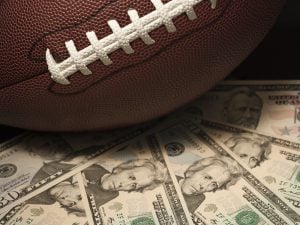2016 NFL Hall Of Fame Game Case Finally Resolves Class Certification Question
There are numerous interesting components to the case that has likely been forgotten by many based on the sheer number of years that it has remained pending.
 In August 2016, National Football Museum, Inc., which does business as the Pro Football Hall of Fame, was sued in federal court after it canceled the scheduled Hall of Fame Game between the Green Bay Packers and the Indianapolis Colts, leaving ticket holders empty-handed. After more than four years since the original complaint was filed, the named plaintiff has finally received class certification, allowing the case to proceed toward a trial.
In August 2016, National Football Museum, Inc., which does business as the Pro Football Hall of Fame, was sued in federal court after it canceled the scheduled Hall of Fame Game between the Green Bay Packers and the Indianapolis Colts, leaving ticket holders empty-handed. After more than four years since the original complaint was filed, the named plaintiff has finally received class certification, allowing the case to proceed toward a trial.
There are numerous interesting components to the case that has likely been forgotten by many based on the sheer number of years that it has remained pending. One such fact is that the named plaintiff, Carmelo Treviso, is represented by attorney Michael Avenatti, who is awaiting his sentencing for attempting to shakedown roughly $25 million from Nike.
However, the case itself revolves around an initially waged claim that National Football Museum, Inc. and the National Football League scheduled the 2016 Hall of Fame Game on an unsafe playing surface, they knew well in advance of the scheduled game that the field was unsafe to play on, they hid this important information from fans who had purchased tickets to the game and likely traveled from afar to witness the game in person, and these actions resulted in damages to those fans. The specific alleged damages are laid out on the fourth page of the original complaint. It states:

Why Do AI And Legal Professionals Make The Perfect Partnership?

As a direct result of the incompetence of Defendants, Plaintiff and similarly situated fans have suffered damages including but not limited to: (1) the out-of-pocket cost of the tickets to attend the game; (2) lodging and travel expenses to attend the game; (3) costs associated with items purchased on the day of the game, including but not limited to items purchased while Defendants purposely concealed the fact that the game had already been cancelled; and (4) missed hours and days of employment for certain fans who took vacation to attend the game.
The case was initiated in the U.S. District Court for the Central District of California. In March 2017, after motion practice surrounding the defendants’ attempt to transfer venue, the court ruled that the plaintiff did not meet the burden to demonstrate the existence of personal jurisdiction concerning National Football Museum, Inc., and the case was transferred to the Northern District of Ohio, where it currently is being adjudicated.
An amended complaint was filed in 2018, but not before the parties agreed to terminate the NFL as a defendant in the action. That amended complaint replaced the original named plaintiff with the aforementioned Treviso and revised the defined alleged class to be certified as all persons who paid for and/or acquired tickets to the 2016 NFL Hall of Fame Game. One of the many affirmative defenses stated by National Football Museum, Inc. was that it was permitted to revoke the licenses granted to ticketholders as long as it offered a refund, which it did, and many individuals accepted the refund.
For the past two years, since the filing of National Football Museum, Inc.’s answer and affirmative defenses, the focus has surrounded the plaintiff’s effort to certify a class for the purpose of converting the case into a class-action lawsuit. In September 2018, the court initially denied the plaintiff’s motion, noting that the class definition included those who had already settled with National Football Museum, Inc. and that “the highly individualized nature of the damages sought by Plaintiff demonstrates the class issues do not predominate over individualized issues.”
Sponsored

Gain An Instant Understanding Of New Complaints With LexisNexis Snapshot

Why Do AI And Legal Professionals Make The Perfect Partnership?


AI’s Impact On Law Firms Of Every Size


AI’s Impact On Law Firms Of Every Size

In November 2018, the plaintiff made another attempt at certifying a class by way of filing a renewed motion for class certification and appointment of class counsel. The motion referenced the court’s prior conclusion that the numerosity, commonality, and adequacy components for class certification had been met, and thus focused on whether subclassing was necessary to establish typicality as well as how damages should be handled at trial. An amended motion was then filed on October 2019, almost a full year later, which directly responded to the court’s inquiry as to why a particular lawyer was believed to be adequate counsel to represent the potential class.
And here we are, almost a year after that amended motion was filed, with the court finally issuing an opinion and order that allows the case to be converted into a class-action lawsuit. The court was pleased that the plaintiff revised the class definition to exclude those ticket holders who had settled with National Football Museum, Inc. and suggested that the court consider certifying a liability-only class.
Maybe now, after over four years of the case pending in federal court, it will progress toward a trial.
Darren Heitner is the founder of Heitner Legal. He is the author of How to Play the Game: What Every Sports Attorney Needs to Know, published by the American Bar Association, and is an adjunct professor at the University of Florida Levin College of Law. You can reach him by email at heitner@gmail.com and follow him on Twitter at @DarrenHeitner.
Sponsored

Diving Into Generative AI: A Practical Guide For Law Firms Starting From Scratch








